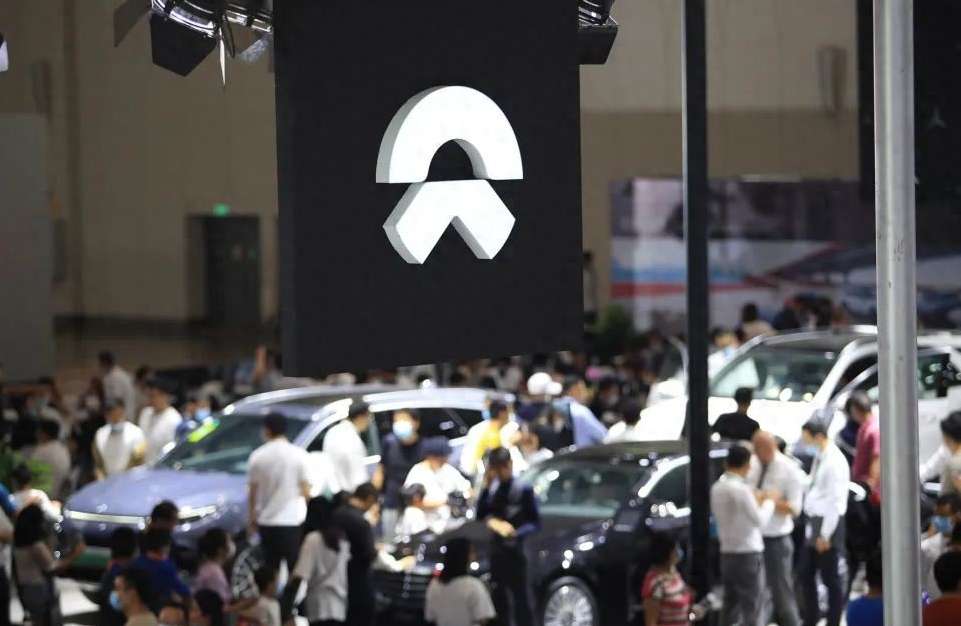NIO's Battery Swapping: A Double-Edged Sword
Advertisements
In the ever-evolving landscape of electric vehicles (EVs), NIO Inc., a Chinese automobile manufacturer specializing in electric cars, is persistently advocating for its innovative battery swapping model. Despite facing skepticism from industry insiders and market analysts, NIO is doubling down on its efforts in this domain, recently announcing a significant partnership with Changan Automobile. Signed in Chongqing on November 21, 2023, this collaboration is poised to pave the way for mutual advancements in battery swapping technology, involving the establishment of common battery standards, the development of swapping-enabled vehicles, and the efficient management of battery assets.
This strategic alliance could mark a critical milestone for NIO, which has invested heavily in its battery swapping infrastructure over the years, finally securing its first significant partner in Changan. The two companies are targeting the debut of their jointly developed battery-swappable vehicle by 2025. This ambitious timeline suggests that NIO is not only determined to persist with its unique battery swapping approach but also to expand its capabilities through partnerships with established automotive firms.
The sentiment within NIO is strongly underscored by CEO Li Bin's recent remarks, reflecting on the challenges faced in promoting battery swapping as a viable solution for EVs. During an internal meeting, he likened NIO's journey in this realm to the early days of cloud computing being championed by tech giants like Amazon. The pursuit of battery swapping, according to Li, is arduous but ultimately the right path. He believes that just as cloud services were initially met with skepticism, battery swapping could likewise revolutionize the way consumers think about EV energy solutions.

Central to NIO's strategy is its extensive network of battery swapping stations: as of November 20, 2023, the company reported a total of 2,103 stations across China, with 798 of those added in the current year alone. This development follows a significant announcement made by NIO on October 26, when it revealed that it had established 2,000 stations nationwide, including 601 located along highways. These stations are designed to facilitate a seamless battery exchange process, providing EV owners with an alternative to traditional charging methods.
However, the concept of battery swapping has not been without controversy. Critics have raised questions regarding the associated costs, the necessary standardization of battery technology for compatibility, and the rapid advancements being made in charging technologies. At this year's Shanghai Auto Show, NIO's President, Qin Lihong, provided insight into the financial requirements for establishing these stations, indicating that each swap station could involve an investment of approximately 3 million yuan. With the projected target of 3,300 stations, the total infrastructure cost could skyrocket to an estimated 60 billion yuan, a factor that looms large over NIO's financial model.
An essential debate surrounding the practicality of battery swapping versus other charging methods highlights NIO's strategic position. Industry giants like Tesla and emerging rivals are focusing increasingly on fast-charging technologies, which offer users the option to quickly recharge their vehicles in a fraction of the time it takes to perform a battery swap. A recent innovation introduced by Contemporary Amperex Technology Co., Ltd. promised a groundbreaking 4C super fast-charging battery that enables users to acquire a range of 400 kilometers with just a 10-minute charge. As more competitors roll out similar fast-charging options, the question arises: Does the future of EV infrastructure lie in battery swapping, or does it predominantly rest on charging technology?
To further complicate matters, numerous auto manufacturers have independently ventured into battery swapping models with varying degrees of success and a lack of cohesive industry standards. The absence of a unified approach means that consumers may face challenges regarding the availability and compatibility of battery swap stations ranging from one manufacturer to another. Attempts by government entities to establish guidelines in this area reflect an understanding of the need for a structured framework to stabilize this burgeoning sector.
Looking ahead, NIO foresees itself as a leader in the battery swapping arena, hoping to extend its technology and infrastructure to other automakers, thereby fostering a more collaborative environment within the industry. Despite having secured a significant partnership with Changan, this alliance underscores the potential long road ahead, as the rollout timeline extends to 2025.
However, NIO is at a critical junction, where further investments risk deepening its financial vulnerabilities. The company has reported staggering losses over the past several years—764 billion yuan by mid-2023—leading to rampant speculation regarding its viability in an increasingly saturated EV market. As traditional automakers accelerate their advancements in electric models and fast-charging technologies, NIO’s unique investment in battery swapping faces heightened scrutiny.
In the competitive arena of the EV sector, brands that have long dominated the landscape are beginning to gain momentum. Companies such as Geely and Changan have made significant strides in the new energy vehicle space, posing a formidable challenge to NIO and their peers. The rise of these established manufacturers suggests a potential shift in the market landscape that could reshape the competitive dynamics.
For NIO, the coming years may be filled with substantial challenges, as it grapples with questions regarding sustainability and operational profitability. Can NIO transition from a focus on innovative concepts to achieving concrete financial success? And how will changing consumer preferences impact the company's strategic direction going forward?
In conclusion, while NIO confidently pursues its ambitious agenda around battery swapping, the pressures of the evolving automotive market and ongoing financial hardships present formidable obstacles. With its historical reliance on this distinct paradigm, the company will need to adapt swiftly to new technological developments, market trends, and consumer behaviors to maintain relevance and profitability in the fierce competition for dominance in the electric vehicle industry.
post your comment